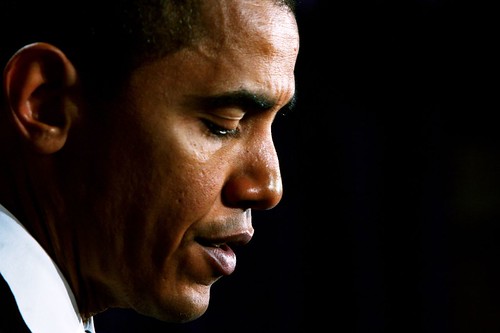Brazen, brash, bronzed and breezy, Silvio Berlusconi has reminded Italy and the world that he is back with a vengeance and doing what his critics claim he does best: governing the bel paese in his own interests.
While Jewish and Catholic leaders say that a climate of hostility towards immigrants and a policy to fingerprint Gypsy children recall the dark days of fascism, Berlusconi has been caught telephoning state television executives to ensure that his 'little butterflies' - as he calls his favourite actresses and female dancers, and one in particular who is annoying him - get to play the roles they want in TV soaps. 'They're all Marilyn Monroe,' he promised one producer.
As the people who elected him in March continue to indicate their priorities in the polls are the same as usual - salaries, taxes and pensions - Berlusconi is using his office to embark on the final offensive of his longest-running and most heartfelt battle: the fight against Italy's judiciary. 'Some of them want me like this,' he scoffed in a speech at the Renzo Piano theatre in Rome, mimicking himself in handcuffs and calling the judges 'a cancer in our democracy'.
With Berlusconi, such provocations come with the territory. Among opposition supporters and in the media, the events of the past few days have inspired sighing references to a film of two years ago, Il Caimano (as in the species of reptile), in which Nanni Moretti plays a fictionalised Berlusconi sentenced to jail, who none the less walks free from the court while a mob hurls debris and a petrol bomb at the judges.
Berlusconi's real-life cabinet decided on Friday to make his office of Prime Minister - and other high offices of state - immune from prosecution, putting Berlusconi in a battle with the judiciary to avoid being tried and convicted for corruption.
Another law aims to suspend for a year trials relating to a range of alleged financial crimes committed before June 2002, potentially derailing a bribery case against Berlusconi, as has happened so many times before.
Meanwhile, Berlusconi's government is pressing ahead with Draconian controls over one of the examining judges' main tools of investigation, wiretapping, and over leaks of wiretaps to the press.
On 18 June, the Senate approved curbs on the use of telephone interceptions, with prison sentences for journalists who publish leaks. That gambit was dramatically undercut however, when a magazine, l'Espresso, last week published a highly comic package of wiretaps in which not only Berlusconi himself but some of his closest aides and opposition leaders apparently pressurise state television executives to cast parts for their favourite actresses.
Judges investigating corruption by an executive of the state television network RAI uncovered a blizzard of calls by politicians of all colours mixing with actresses - and even those women who bounce around on primetime television, a distinctive Italian style pioneered by Berlusconi - and trying to secure them roles on screen.
Berlusconi's own intervention, made when he was leader of the opposition, is heartfelt. The Italian Prime Minister is recorded as seeking a part for a comely blonde called Antonella Troise, of whom he says to the executive: 'This nutter has taken it into her head that I hate her, and am blocking her career, so do me this favour because she's getting dangerous.'
Calling a producer named Guido de Angelis, Berlusconi says: 'Look, for all these little butterflies I thank you; you've found places for all I've given you? You want divas? They're all Marilyn Monroes!' 'Mata Haris more like', replies the producer. 'Guido,' Berlusconi responds. 'I propose Mother Teresa of Calcutta, that will teach them.'
It's not only Berlusconi who is involved. His senior adviser, Gianni Letta, wanted a role for a lady in a series called A Place In the Sun, and his lifelong ally, Fedele Confalonieri, has also been on the line to RAI - as has the centre-left champion Francesco Rutelli (trounced at the recent Roman mayoral elections by a neo-Fascist candidate) who is trying to get a part for an acquaintance called Maria Scicolone in a series about Sophia Loren's family.
Rather than wince at the absurdity of the exchanges, and the networks of influence they appear to expose, Berlusconi and his government have rounded on the judiciary and its manipulation of wiretapping and the media for 'political purposes', demanding changes to the wiretapping law as a matter of 'extreme urgency'. So the starlets and their putative roles have become yet another cause célèbre for Berlusconi as he pursues his enemies in the legal profession.
The reasons for Berlusconi's animosity are many, but the most urgent is that he is currently accused of 'judicial corruption' along with David Mills, estranged husband of the British Olympics minister, Tessa Jowell, having allegedly paid Mills a bribe of $600,000 in return for giving false testimony on his behalf. Since 1981 Mills, a corporate lawyer, has established an offshore network of companies on behalf of Berlusconi's Fininvest umbrella company. Both men deny all charges and wrongdoing.
Examining judges in Milan say they are nearing the end of gathering testimony and could reach a verdict before the summer recess (though another charge of money-laundering against Berlusconi and Mills is running into the sands, once again under the statute of limitations).
So the battle that began in earnest with Berlusconi's entry into politics in 1993 continues. Back then Italy was at the end of an extraordinary period during which an entire political class became the subject of a judicial investigation known as Mani pulite (Clean Hands). The examining judges were beginning to close in on Berlusconi's media networks and Fininvest business empire and their connections to senior politicians. Then, in a move which transformed the country's politics, Berlusconi formed his Forza Italia party and filled the vacuum at the top by winning the election of 1994.
The spearhead of Clean Hands, Judge Antonio Di Pietro, said on Friday, following the wiretap scandal: 'This is not a matter of a Prime Minister put in the mire by a magazine, but the behaviour of a television proprietor who happens to be Prime Minister and intervenes to ask favours. If that is not a conflict of interests, I don't know what is.'
As for the immunity package, Di Pietro called for the gathering of signatures in the streets and squares for a referendum over the proposed law, with a view to abolishing it through plebiscite. 'Berlusconi may be shrewd, but I'm not a dunce,' he said. Meanwhile, the vice-president of the judiciary, Nicola Mancino, condemned the suspension of cases as 'an occult amnesty'.
Having elected Berlusconi, the Italian public does not share his concern about the judiciary. Recent polls show the usual preoccupations with salaries and pensions, with only 3.4 per cent interested in the magistrature. His anti-immigration policies are popular, with large majorities favouring the demolition of gypsy camps around Rome and other cities.
However, the new climate, and a move to fingerprint gypsy children, has brought condemnations from the Catholic charity Caritas, Unicef and Amos Luzzatto, former head of the Union of Jewish Communities, who said that the move recalled 'days when I could not go to school, and people would point at me saying: "Look, mummy, it's a Jew". This is a country that has lost its memory.'
But the sensitivities of Italy's migrant populations are the last thing on Berlusconi's mind.













































